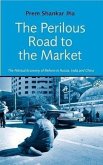The first comparative analysis of the development and practice of technology assessment in different national settings. Parliaments and Technology explores an issue critically important to the practice of democracy everywhere: How do citizens and elected officials assess the opportunities and costs of new technologies that may profoundly impact their societies' future? For example, what are the social and moral implications of gene patents, reproductive technology, cloning and genetic engineering or of virtually unlimited access to information? Technology assessment has become one of the most important methodologies for aiding legislatures in analyzing and deliberating such questions. The first comparative analysis of the development and practice of parliamentary technology assessment in different national settings, this book explains the origins, methods, and impacts in five European countries-Britain, France, Germany, Denmark, and the Netherlands-and the European Parliament. It also provides a theoretical framework for comparing the institutionalization of new functions in different parliamentary systems and the influence of national political cultures on the conceptualization and operation of these new agencies. Contributors include Josée van Eijndhoven, John Grin, Dick Holdsworth, Rob Hoppe, Simon Jos, Lars Klüver, Todd M. La Porte, Maurice Laurent, Michael Norton, Herbert Paschen, Thomas Petermann, and Norman J. Vig.
Bitte wählen Sie Ihr Anliegen aus.
Rechnungen
Retourenschein anfordern
Bestellstatus
Storno







